Charlie’s Soap is the perennial favorite on tons of natural living blogs, and having used their powder formula, I can attest to its effectiveness.
Like other producers, Charlie’s is unwilling to provide their exact ingredients, and would only say this when I probed them further: “Our formulas are what make us special. They have been fully tested for toxicity (Duke University), biodegradability (Japan Food Research Labs), and effectiveness (SGS US Testing Labs). They are unique and (following the practices of Coca-Cola) secret. Their formula is secret too, but that doesn’t keep folks from drinking it.”
Hmmm, comparing themselves to Coke probably isn’t Charlie’s savviest PR move—The Coca-Cola Company is not exactly exemplary when it comes to concern for the health of its consumers. While Charlie’s denies using SLS or SLES, one of the ingredients they disclosed is sodium metasilicate–which Skin Deeps considers moderately hazardous and which the Journal of Reproduction and Fertility found to show reproductive effects in animals at low doses. EWG Score: D
Looks like Charlie's now lists ingredients but C12-16 pareth-9 and theC10-14 alcohol ethoxylate both come with possible contamination with ethylene oxide and 1,4-dioxane.
Citra-Suds has also been moved from Good Stuff to Sneaky Stuff. One of my readers suspected that their laundry detergent contains sodium laureth sulfate and I followed up to discover that it does. When doing the initial review, I had an email exchange with a company representative and I asked twice if their laundry detergent contained SLES. I was told that it did not.
I suspect that the woman I talked to was just uninformed, but this is no excuse. In addition, some Citra products (laundry and otherwise) contain limonene, a potential carcinogen, and definite respiratory irritant. I was told they used orange oil for fragrance, which is a misleading answer as orange oil is technically a different (and harmless) ingredient. It also contains neurotoxic methylisothiazolinon. EWG Score: C.
Clean Cult - Calls itself a plastic-free brand while uses plastic for sheets
Dapple’s various laundry detergents contain tetrasodium iminodisuccinate (which gets a C from EWG) and benzisothiazolinone, which is a concerning preservative.
DedCool is fragrance heavy and not transparent about their ingredients.
Earth Breeze uses PVA strips
Earth Friendly ECOS laundry detergents contain bad surfactants (like cocamidopropyl betaine) and preservatives (neurotoxic methylisothiazolinone).
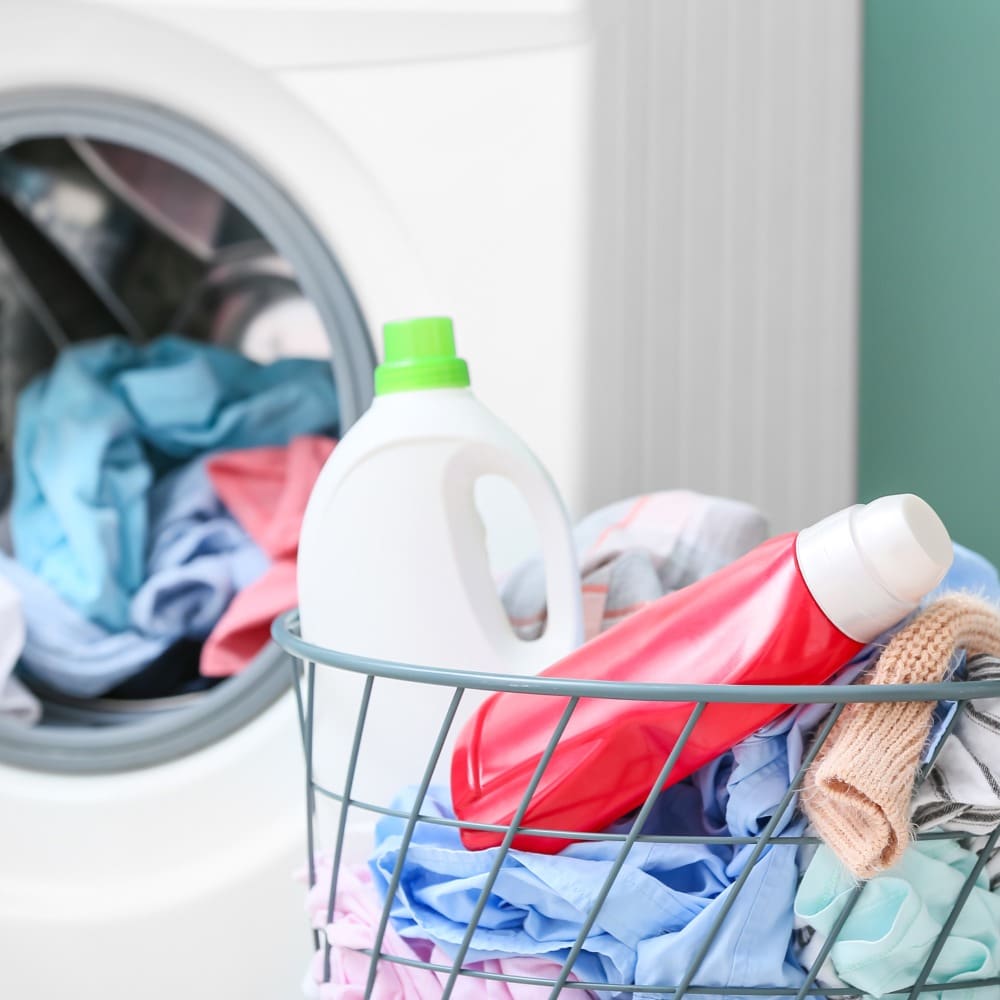














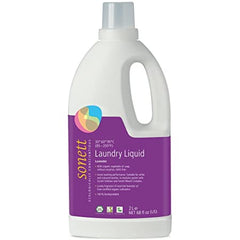
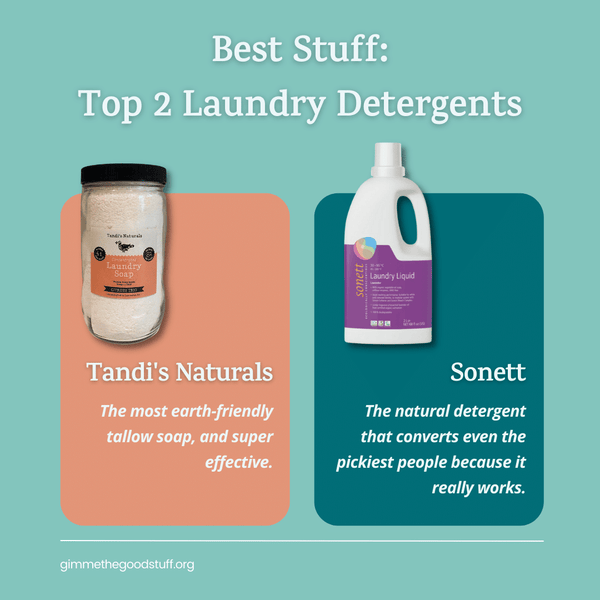


























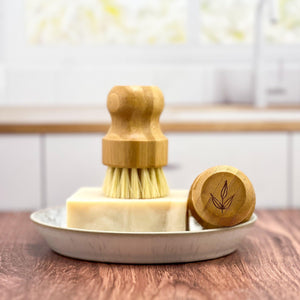
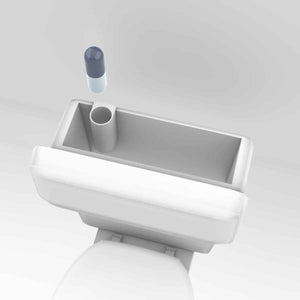
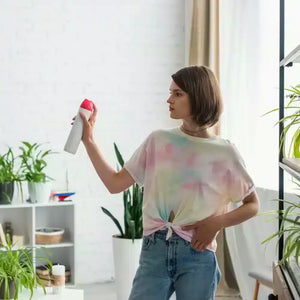
376 comments
Renee
Hi. Have you been able to find anything to get rid of the ammonia smell? I’m having the same problems, and they smell just down right funky once my little one urinates in them. I currently use Tandis, and it’s not working well. :(
Maia James
I’m sorry, but this is outside my area of expertise! Maybe someone else will chime in with an answer!
Maia James
No, we haven’t done a review of this yet! We will, I promise!
David Block II
What detergent is best for flame resistant clothing? Tallow is not supposed to be used at all so they say. I just want my FR clothing to stay FR since I am a lineman. Meaning I work on 4100 KV to 500000KV.
Jessica Brooks-Forgan
Any results on Fit Organic yet? Just curious. Thanks!
Maia James
Sounds like it’s Good Stuff!
Kayla
Eliminate not illuminate
Kayla
I really respect what you said and how you said it. I’m wondering what resources you have to share for non scientists to review.
I’m also wondering what you think about the EWG. As for the validity of avoiding “chemicals,” for some it is a matter of health. Chemical sensitivity is real- recognized by the CDC and HUD (requiring housing modifications for section 8 housing recipients who have MCS disorder). Most of us who are researching recommendations such as this site has to give are seeking resolutions after experiencing immune complications. For me, I prefer to keep things as simple as possible. Including not using soaps that remove my skin’s oil because it isn’t meant to be disturbed. Our bodies don’t need soap- they need oil and warm water to be cleaned. Another interesting tidbit is the New Zealand study that illuminated SIDS by sealing the crib mattresses to illuminate off gassing. SIDS dropped from 150-some odd cases to zero. That is significant. If not for picking a non surfactant laundry detergent, avoiding the things mentioned for mattresses and furniture could be very valid. And anyway, the way I generally feel about things is that we have choices for a reason. Different bodies respond to different household items the same way they respond to foods differently. It’s ok for someone to find a way of purchasing things that works for them that might be contrary to what chemists think, because scientific opinion changes. Particularly in regard to what’s deemed as safe in our homes and bodies.Kayla
What about Country Save? EWG gives it an A. They also make an oxyclean – any thoughts on oxygen bleach?
Nicole
I’m struggling with the same thing. Unfortunately, all the detergents on this list seem to be “not recommended” for use with cloth diapers. According to the website Fluff Love University, they don’t recommend detergents if it “does not contain a sufficient concentration of surfactant to clean human waste from multi-layered cloth diapers when used at up to three times the manufacturer’s recommended use amount, uses a formula that is known to cause burns to users, uses a formula that will cause damage to cloth diapers or impede their function (as by coating fibers to trap soil or cause repelling of liquids), has been consistently shown to be ineffective among users in our Facebook troubleshooting group.”
Here’s a site I use to check: http://www.fluffloveuniversity.com/how-to-wash-cloth-diapers/detergent-index/ Personal results may vary, but in the mean time, I’m still searching!